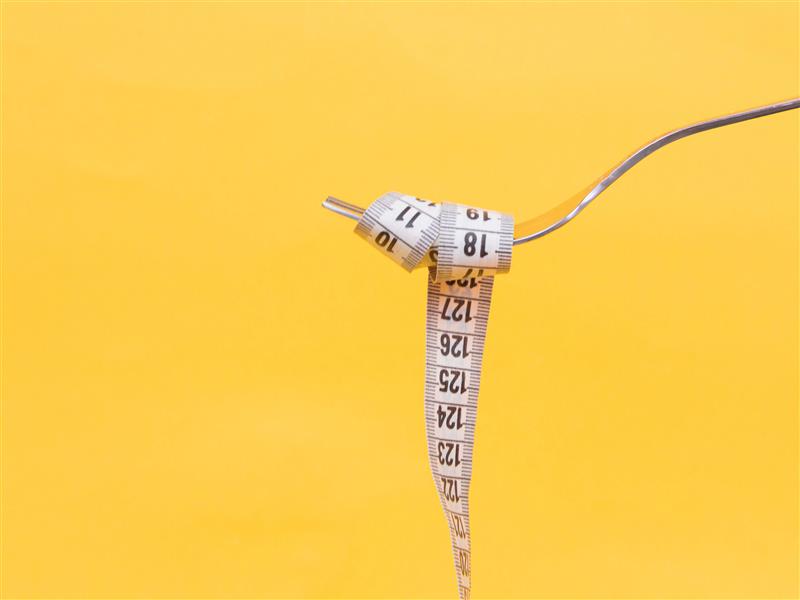*Editors note: The “Views from NAU” blog series is written by NAU affiliates and reflects the views of the author.
 By Hannah Rahn
By Hannah Rahn
Senior in psychological sciences and founder of NAU’s Body Positivity Club
Our culture is obsessed with being thin. Like many college students, I’ve fallen prey to wishing, hoping and praying for my body to look like those I see in the media. Looking back on my college journey, I can see just how much my thoughts about weight and health have shifted and how much healthier I am now because of it.
The Health at Every Size (HAES) paradigm is a concept that I first heard about my freshman year of college in my Healthy Lifestyles course. Health sciences professor Dawn Clifford came to speak to my class about HAES and the truth about health and weight.
The truth is that weight is a lousy predictor of health and pursuing weight loss may cause more harm than good. In other words, we can’t judge a person’s mental or physical health based on the number on the scale, nor should we all try to fit the mold of certain body shapes and sizes endorsed by the Body Mass Index scale or the misrepresentation of bodies in the media. Health is better supported by pursuing health-supporting habits regardless of weight outcomes and eliminating the weight stigma that plagues our culture.
This message resonated with me, and the more I learned about it, the more I realized how powerful and life-changing this message is.
Since then, I have been trained as a UCAN health coach, started the Body Positivity Club on campus and currently serve as the UCAN Health Coach Manager. All of these ambitions and experiences stem from the powerful and convincing scientific evidence that supports a body-positive message and a belief that everyone can benefit from embracing a non-diet approach and becoming more weight-inclusive.
The Health at Every Size movement is about eliminating weight bias, getting rid of the stigma surrounding not being thin and educating people on the truth about health. By looking through the HAES lens, you see the whole person and all aspects of health instead of only physical health. Weight is not a determinant of health by any means, which is why I try to shift the focus away from weight when I am talking with clients and instead invite them to focus on health-supporting behaviors and how they are feeling.
Are their behaviors helping or hurting their physical and emotional health? Do they feel energized? Confident? Strong? Happy? Do they feel restricted in their eating? Does exercise feel like a chore? By asking these questions and making changes that will help them feel better overall, their health improves despite what the number on the scale says. Plus, I notice my clients walk away feeling more confident and less worried about food and their body.
Body positivity goes hand-in-hand with the HAES movement. Body positivity is about loving yourself so much that you want to treat your body right by implementing health-supporting habits into your daily life. This movement takes the focus off of weight and instead focuses on unconditional love and acceptance. It’s important to focus on changing behaviors to feel better, but at the end of the day, your body is going to be the size it is meant to be based on your genetics, so stop trying to control it.
Through guest speakers and videos, members of the Body Positivity Club are educated about HAES and body positivity so they can spread this message to people within the NAU and Flagstaff communities to feel more confident with themselves.
I believe this is such an important message to share with students considering how saturated the media is with myths about health. I have had many heartbreaking conversations with people about the hatred they have for their body. It blows my mind how many people will spend the majority of their life hating the one body they have, which often leads them down a dangerous path of unhealthy behaviors.
To start the journey of healing your relationship with your body, consider filtering your social media feed by unfollowing accounts that make you feel bad about yourself and follow body positive accounts that promote the Health at Every Size movement instead. Another tip is to write affirming words on the mirror or sticky notes to remind yourself that you are worth much more than a number on a scale.
Surrounding yourself with like-minded individuals is important so that they can support you on your health journey. Set boundaries with the body shamers in your life and make new friends who celebrate differences and eliminate diet culture language from conversations.
One way to find those like-minded individuals is by joining the Body Positivity Club! Follow us on Instagram @naubodypositivity2.0. If you feel that extra support would be beneficial to you, UCAN health coaches are trained to discuss body image and all things health related. Visit the UCAN website to sign up for a free initial session.




